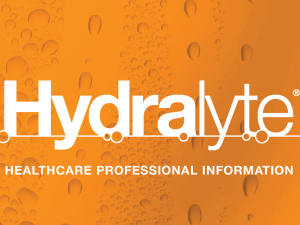Academic pharmacist Nataly Martini provides key information on Helicobacter pylori pathophysiology, diagnosis and evidence-based treatment strategies to enhance patient outcomes
National says exempting some groups from copayments encourages equity
National says exempting some groups from copayments encourages equity

The National Party would exempt Community Services Card and SuperGold Card holders, and beneficiaries from the $5 copayment. Pharmacists say they would spend too much time policing the exemptions and not enough explaining how people should take their medicines. Natasha Jojoa Burling reports
The National Party claims its policy of targeted prescription charges will encourage more health equity and cost more than $100 million less per year than the Labour Party’s blanket removal of the fee, but pharmacists are not convinced.
The Government announced in Budget 2023 that the $5 copayment would be dropped for everyone from 1 July, but National will repeal the move if elected in October.
National’s health spokesperson Shane Reti says that under National, only those with Community Service Cards, SuperGold Cards and beneficiaries would be exempt from the charge.
Dr Reti says it would cost $49.3 million a year for the three groups to get free scripts, compared with about $155 million per year under the Labour Party’s scheme, where everyone is exempt.
His $49.3 million figure comes from a Pharmacy Guild estimate of how much revenue is currently generated from collecting prescription fees from CSC holders. This figure was included in a guild submission made in March to the Petitions Committee on the United Community Action Network’s petition to remove prescription charges for CSC holders.
But guild chief executive Andrew Gaudin says the table was only part of the organisation’s comments supporting universal copayment removal, which it has consistently advocated for over the past five years.
The submission asked the Government to “urgently look at the impact large-scale discount chains are having on the community pharmacy sector and the threat these operations pose to the long-term financial viability of the sector”. It recommended removing the copayment for all New Zealanders and outlined the benefits of this, says Mr Gaudin.
The guild is disappointed the National Party would partially reinstate the copayment if elected and has contacted the party’s leaders about their comments. It has also asked the Act Party for its position.
Based on information from Stats NZ and MSD, Pharmacy Today estimates under National’s policy, about 1.9 million people would be exempted from prescription fees. These include:
- 842,000 people aged 65 or older as of July 2022
- 353,904 people receiving a main benefit as of December 2022
- 718,593 CSC holders who do not also hold a SuperGold Card as of 2021.
That actual number is likely to be less, as some people receiving a benefit will have a CSC.
Dr Reti is not yet sure what a person would have to show to prove to a pharmacist that they are receiving a benefit under the policy. But he says the number of people on a benefit without a CSC will likely be relatively small.
“Everyone on a main benefit qualifies for a Community Services Card, so it would be a driver towards people getting one,” he adds.
Rotorua pharmacy owner and Prescription Access Initiative spokesperson Charlotte Schimanski is concerned the threshold for getting a card is too high, and that many people on the minimum wage and part-time workers struggling with costof-living increases don’t qualify for one.
Filling out forms is also a barrier for some people who qualify for a CSC, especially if they are facing housing security issues, Ms Schimanski says.
While there are no figures on how many people are eligible for a CSC who do not have one, only 71 per cent of the about 1000 participants in Pauline Norris’ Otago University study, Impact of removing prescription co-payments on the use of costly health services: a pragmatic randomised controlled trial study, had a Community Services Card. Many participants in the study, which was cited as evidence for the prescription fee being removed, would have been eligible.
A system where some people are exempt from copayments and others are not would be much more complex than necessary, says Ms Schimanski.
“It would be a waste of pharmacy resources and require more paperwork and policing to enforce a targeted system,” she says. Pharmacists would have to spend time explaining why people don’t fit the criteria when they should be explaining how people should take their medicines.
“Pharmacists are not administration people; they are medicines experts,” she says.
There is a lot of whakamā, or shame, around being on a benefit, says Ms Schimanski. That means it would be hard for pharmacists to ask people if they’re on a benefit, and they don’t have access to that information either.
Clint Smith, a former policy and communications advisor to the Labour and Green parties agrees that National’s policy will create added complexity that pharmacists will be left to deal with.
“I suppose the Government could create something on the National Health Number that shows if people have to pay or not, but for every script, pharmacists will have to check that, and there are already some limited exclusions, such as age restrictions, pharmacists have to deal with,” Mr Smith says.
“Free prescriptions for everyone remove the whole burden from pharmacists and the health system; no one has to decide who’s in and who’s out.”
Dr Reti says the media has accused National of not applying an equity lens to health.
“However, giving the same benefit to the wealthy as the vulnerable is not using an equity lens.” He says of the 135,000 people who didn’t pick up their scripts in 2021/22, many are on very low incomes, Māori, Pasifika or over 65, and highly likely to be CSC holders or beneficiaries. Most would be helped under National’s proposal.
He says those eligible under National will also not have to pay the higher $15 fee for prescriptions from specialists and dentists, which are not removed by Labour’s policy.
Dr Reti is also worried that Australian and UK tourists will benefit from scrapping the $5 fee, saying the copayment relief is for vulnerable New Zealanders, not tourists.
Ms Schimanski thinks this point is a “red herring” and, in practice, will be a minor issue. New Zealanders can access healthcare in the UK and Australia, she says.
Universal removal of copayments will take the pressure off hospitals and general practice, adds Ms Schimanski.
More people will pick up their prescriptions, take their medicines and avoid ending up in hospital. She thinks there would be significant savings because of fewer hospital admissions but says it’s hard to put a monetary value on that.







